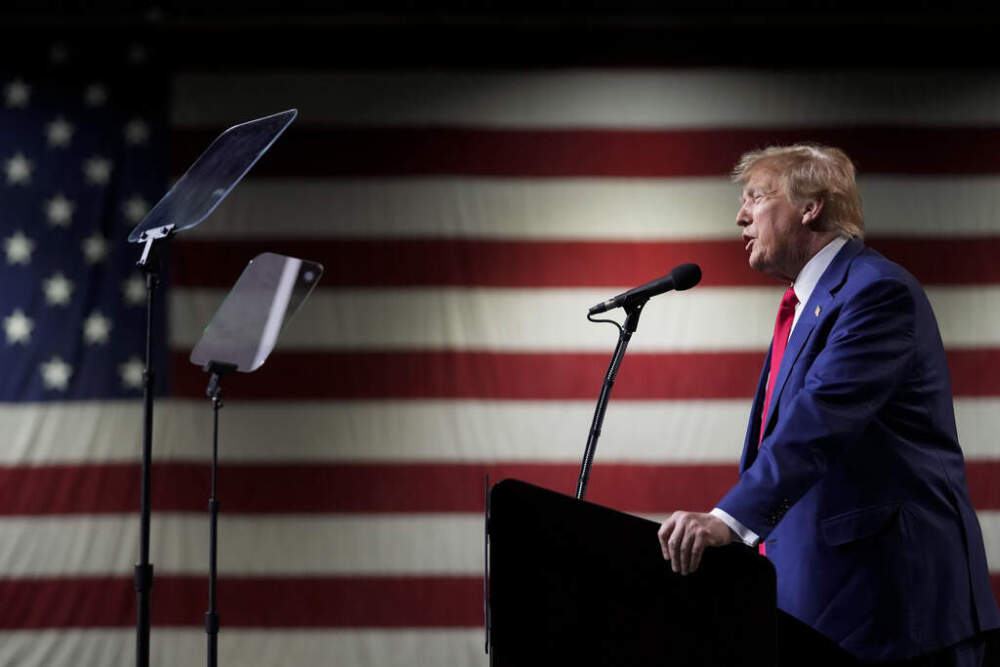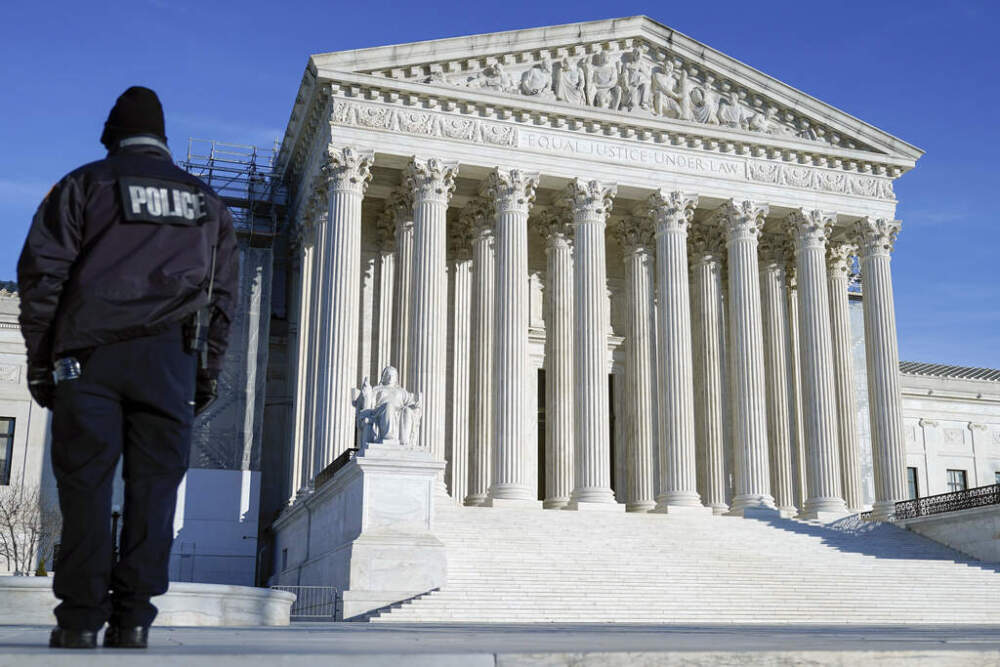Advertisement
Commentary
How the Supreme Court can save itself — and the rest of us

The Supreme Court has agreed to hear Trump’s appeal of a Colorado ruling disqualifying him from the 2024 ballot on the basis of Section 3 of the 14th Amendment. That provision, passed just after the Civil War, bars anyone from holding an “office … under the United States” if they had “previously taken an oath … to support the Constitution” and later “engaged in insurrection” or “gave comfort” to those who did.
If you have never pondered the meaning of Section 3, no reason to be embarrassed. I am a constitutional law professor who clerked on the Supreme Court, and I never spent much time thinking about it because — until January 6, 2021 — I assumed insurrections were a thing of the past. But we now know they are not, and this little-noticed provision will now occupy center stage in American law and politics for the next few weeks, and maybe the rest of the year.
The court has put the case on a fast track, scheduling the hearing for early February. The court prefers ponderous, months-long deliberations on even the most picayune legal issue, but the urgency on this case is necessary. After runaway victories in Iowa and New Hampshire, Trump has all but locked up the nomination. We are now on a very long runway to the November general election.
If the court upholds the Colorado decision, it will knock Trump off the ballot not only in Colorado but other states too — disqualification challenges await in Massachusetts and over 30 other states. The court’s ruling could thus determine the outcome of the November election and the coming four years. It’s the most important electoral case since Bush v Gore.
I never spent much time thinking about [Section 3] because — until January 6, 2021 — I assumed insurrections were a thing of the past. But we now know they are not ...
Trump and his people are already decrying any disqualification decision as anti-democratic. A spokesman called the Colorado ruling a “bad-faith, election-interfering, voter-suppressing, Democrat-backed and Biden-led, 14th Amendment abusing decision.” His lawyers, in a brief to the Supreme Court, were only slightly more subtle, warning the court that a decision to “disenfranchise tens of millions of Americans” would “unleash chaos and bedlam.”
Most court watchers think the justices will blink and find a way to avoid ruling against the former president. A disqualification would blindside most Americans — who had ever heard of Section 3 before a month ago? — and the court may be wary of centering itself in the presidential election. Removing Trump from the ballot will indeed strike many Americans as anti-democratic, and the court likes to clothe itself as a protector of democracy. Also, Trump has been America’s most dominant political figure for almost a decade. To bar him would require a nervy assertion of judicial authority. And let’s not forget that three of the current justices were appointed by Trump, and another — Justice Clarence Thomas — is married to an election denier who attended the January 6 rally. The odds do not look good for the disqualification side.
But the court, and particularly Chief Justice John Roberts, should remember the old adage to “never let a crisis go to waste.”
The substance of the case is actually straightforward, even easy. Yes, the president is an officer covered by the ban. Yes, the January 6 violent attack on democracy is the kind of “insurrection” imagined by the provision and yes, Trump “engaged” in that insurrection and gave comfort to those who did. No, his speech and his tweets whipping the mob into a violent frenzy were not protected by the First Amendment. And no, the provision does not depend on congressional action any more than the constitutional ban on 34-year-olds serving as president.

Section 3 is little known, to be sure. But that is because armed insurrections are (thankfully) seldom seen, and Section 3 provides a necessary and democracy-protective bulwark against treasonous violence when it happens. Yes, taking Trump off the ballot will reduce the electoral choices we have in November. But barring Trump for being an insurrectionist under the 14th Amendment is no more anti-democratic than banning Barack Obama from running for a third term pursuant to the 22nd Amendment — an outcome-determinative limitation on voters’ choice that we take for granted.
It would be inconsistent indeed for this Court to demur. This set of justices is particularly comfortable flexing its judicial muscle, for example by striking down abortion protections and gun restrictions voted into place by democratic processes. And if they were to back down because of the implicit threat of mob violence against them, such threats become more likely in the future. That is the kind of monstrously anti-democratic precedent the court should avoid, not engender.
This is not the moment for the court to discover the virtue of being a political wallflower. The justices should recognize what many Americans already see: that a second Trump term poses real danger to democracy.
This is not the moment for the court to discover the virtue of being a political wallflower.
What’s more, most of the justices are traditional conservatives who may privately long for an end to the GOP’s Trump-induced fever dream. Without Trump, Nikki Haley becomes the probable Republican nominee, representing a return to a semblance of normalcy not only in the GOP, but in national politics as a whole. Perhaps she beats Biden, but even if she doesn’t, it seems unlikely that her supporters would storm the Capitol to stop the vote tally. Even the conservative justices should welcome a return to the days when Republicans fought with ideas rather than fists.
Chief Justice Roberts could capture this moment to reestablish the court’s flagging legitimacy. Richard Nixon resigned the presidency only after the Supreme Court ordered him to hand over the Watergate tapes to federal prosecutors. The court ruled unanimously, even though Chief Justice Warren Burger and three associate justices had been appointed by Nixon. Chief Justice Roberts could do the same now.
A unanimous vote is impossible since Thomas and Sam Alito will never go along. But if Roberts could marshal the three Trump appointees (Neil Gorsuch, Brett Kavanaugh and Amy Coney Barrett) to join him and the three liberals (Sonia Sotomayor, Elena Kagan and Ketanji Brown Jackson) to rule against Trump, the court instantly regains years of lost stature. Accusations that the court is “just another political branch” collapse.
Chief Justice Roberts has been touted as an institutionalist, with the court’s legacy being among his primary concerns. If that is indeed his topmost motivation, now is the time to show it. Opportunities for the court to save the country, a political party, and itself do not come often. The court should not miss the moment.
